- Home
- Franklin W. Dixon
The Sinister Signpost Page 2
The Sinister Signpost Read online
Page 2
“These guys,” the young man shouted, “are trying to pin some sort of car accident on me!”
Alden eyed Roger suspiciously. “I don’t think the Hardy boys would accuse anyone without good reason. If you were involved in an accident, it wouldn’t be the first time.”
Frank and Joe glanced at each other. It seemed wise not to force the issue. They told Mr. Alden about their encounter with a dragster the previous day, but could not say for certain that the driver of the bright-orange car was Roger.
“Then only my son can clear up this matter,” Alden said. He put the question to Roger.
The young man became even more arrogant. “I didn’t ram into anybody’s car, and I never heard of Shore Road!”
His father was in a quandary. Finally he said, “Until this matter can be investigated further, I forbid you to drive your dragster in the competitions today.”
“We’ll see about that!” Roger muttered defiantly. He glared at the Hardys, then turned and walked off at a furious pace.
“I don’t know what to do about my son,” Alden said with remorse. “His mother died several years ago, and I haven’t been able to spend much time with him. He’s been getting more difficult to live with every day.”
“I’m sure he’ll straighten out,” Mr. Hardy remarked sympathetically.
“I hope so,” Alden replied. Suddenly his mood changed. He turned to Frank and Joe. “Now down to business. Your father tells me you two are going to work with him on the case,” he said.
“That’s right,” Frank replied.
“Excellent! I’m sure you have some questions of your own you’ll want to ask me. However, I must fly to Washington immediately after the competitions. How about all of us meeting in my office Monday morning?”
The Hardys nodded.
Alden looked at his wrist watch. “It is time for me to get to my post. I’m the official timekeeper for the stock-car runs. Perhaps you would like to join me out on the track.”
“Would we!” the boys answered excitedly.
As they started to Walk off, Frank bent down and picked up a small packet which had fallen from his brother’s pocket during the scuffle. It was Joe’s detective kit. Each of the Hardys carried one. Among the items that had spilled out was a magnifying glass and a metal signaling mirror. He handed the kit to Joe.
Suddenly a voice crackled from the loudspeaker of the P.A. system.
“The first trial run will be made by car number twenty-two. The driver is Roger Alden!”
“What!” exploded Alden. “How did he get his hands on a car? I must stop him! Roger doesn’t have enough experience for closed-circuit racing!”
CHAPTER III
Prime Suspect
ALDEN rushed toward the starting line with the Hardys close at his heels.
“Stop that car!” he shouted.
But it was too late. Roger roared off.
“Flag that car down!” Alden ordered one of the track officials.
“I’ll try to signal him with my mirror when he comes along the straightaway,” Joe said.
Frank and Joe ran alongside the track opposite to the direction Roger was headed. They watched him as he skidded dangerously on the far turn.
“Did you see that?” Frank yelled.
“Yes. He took that curve too fast.”
The boys hurried down the straightaway. As Roger came around the second far turn, his car spun out of control and crashed through the fence on the sideline. A huge geyser of dust erupted from the spot.
Frank and Joe rushed to the scene of the accident. An ambulance sped by them with its siren screaming. They arrived just as two white-coated men were helping Roger move away from the damaged vehicle.
“Is he hurt?” Joe asked quickly.
“No,” one of the men replied. “He’s lucky. I think he just had the wind knocked out of him. But we’ll take him to the hospital for an examination, anyway.”
Shortly Roger’s father and Mr. Hardy came running up.
“Are you all right?” Alden asked his son nervously.
“I—I guess so,” Roger gasped, still trying to catch his breath. Then he glared at the Hardys and pointed an accusing finger at them. “You guys are the cause of this!” he screamed. “You reflected sunlight into my eyes with that mirror of yours!”
“You’re crazy!” Joe retorted.
A rangy young man appeared and gazed at the wrecked car in disbelief. “My car!” he groaned. “It’s almost totally demolished!”
“Are you the owner?” Alden queried.
“Yes, I am.”
“How is it my son was driving your racer?”
“Roger offered me a hundred bucks if I would let him make the trial run,” the young man explained. “Now all I have is a pile of junk.”
“Serves you right,” Alden snapped, “but I’ll pay for the damage.”
Roger was helped into the ambulance and taken to the hospital. Although his father was greatly upset over the incident, he did not request that the competitions be discontinued. Instead, Alden told the participants to carry on. At the signal, engines began roaring to life. The Hardys and Chet watched the day’s activities and were thrilled by the performance of the skillful drivers.
After dropping Chet off at the Morton farm, the three detectives headed home. When they arrived, Mrs. Hardy announced that supper was ready to be served. As they ate, the boys discussed the day’s events.
Aunt Gertrude looked at them scornfully. “Racing of any kind is just dreadful! It should be outlawed!”
“When properly organized,” Frank put in, “it’s a fine sport.”
“I call it utter nonsense!” Aunt Gertrude retorted. She hurried out of the room before her nephews could argue the point.
The next day the boys rose late. After eating a hearty breakfast and attending church services, they settled down to read the voluminous Sunday newspapers. Shortly the telephone rang. Frank scooped up the receiver. The caller was Iola Morton, Chet’s sister.
“Chet won’t be able to see you later,” she sobbed. “He’s had an accident!”
Frank and Joe leaped into their convertible and drove to the Morton farm. They arrived to find the entire family standing on the front porch of the house. Chet was seated on the steps, exclaiming that he was all right. His face was blackened with soot.
“I don’t need a doctor!” the chubby youth insisted.
“What happened?” Frank asked worriedly.
Mr. Morton, a good-looking, normally jolly man, turned to the Hardys. “Chet was experimenting with a highly volatile fuel on the engine of that old car I keep in the barn. He was pouring some into the carburetor when it suddenly blew up.”
“It seems the racing bug has bitten him,” said Iola, a slim, pretty girl. She was a witty, light-hearted person and was a school chum of the Hardys. Iola was Joe’s favorite date.
“I was afraid something like this would happen,” Frank remarked. “However, I didn’t expect it so soon.”
Mrs. Morton, an attractive, dark-haired woman, hurried to meet Dr. Mills, a Bayport physician, as he drove up to the house. He examined Chet, then left after saying that fortunately the boy had not been injured.
“You’d better call off your experiments,” Joe advised his friend.
“I’ll make sure he does,” Mr. Morton said. “I’m getting rid of that old car right away.”
“But you can’t!” Chet protested. “I’m on the threshold of producing the Morton super-duty racing car!”
Frank and Joe helped to convince him that such experiments should be left to the experts. Chet was crestfallen for a moment, then his face suddenly brightened.
“I’ll drop the race-car project in favor of another idea,” he said. “A rocket-propelled bicycle!” The Hardys shook their heads in despair and returned home.
Monday morning found Mr. Hardy and his sons in Keith Alden’s office. The company president was seated comfortably behind his desk, ready to discuss the case with them.
>
Frank was the first to speak. “Dad says that you suspect someone is trying to steal your experimental motor. Why?”
“My motor,” Alden replied, “uses a valve of a very unusual design. In fact, we’re not equipped here at the plant to make one. However, I learned of a company on the West Coast that specializes in valve manufacturing. They said they could do the job, so I gave them the green light.”
He went on to say that one day Mr. Dillon, president of the valve company, had telephoned him excitedly. A stranger, who refused to identify himself, had appeared with the specifications of a valve exactly like the one to be used in Alden’s experimental motor.
Keith Alden rubbed the back of his neck. “Beats me how the fellow got hold of my design.”
“What’s the name of the company, sir?” Joe asked.
“Exeter Valve. It s a small outfit and, lucky for me, very reputable. Mr. Dillon told the guy he’d like to study the specifications further before agreeing to handle the job. The stranger refused and scooted off.”
“Did you get a description of him?” Frank asked.
“Yes,” Alden replied. “He was tall, wore black rimmed glasses, and had a beard and mustache that looked phony.”
“Obviously a disguise,” Mr. Hardy commented.
“I’m certain it was by sheer accident that the stranger went to the same company I was dealing with,” Alden declared. “And I’m also sure that his valve sketch was a direct copy of my own design.”
“Leaping lizards!” Joe interjected. “Maybe the stranger has the plans to your whole motor!”
“We doubt that,” Mr. Hardy said.
Alden grinned. “Your father is referring to the precautions I have taken to prevent the plans from being stolen.”
“What kind of precautions?” Frank asked.
Alden explained that there were only two sets of plans in existence. “One set, the original, is safely hidden. The other is recorded on film slides.
“The work is divided among the technicians here,” the man continued. “No one worker knows what the other is doing. Each receives his assignment in the form of a slide, which is placed in a burglarproof projector. He displays it on a small screen and uses it for his job.”
“Sounds foolproof,” Joe commented.
“That’s what I thought,” Alden said. “Yet somehow specifications for my motor must be leaking out of the plant.”
“So far,” Mr. Hardy told his sons, “only half of the slides have ever been seen by anyone other than Mr. Alden. That’s why we doubt that the entire design has fallen into the wrong hands.”
The boys asked Alden if he had the slightest reason to suspect any of his workers.
“No,” he replied. “And just to be sure, I had them all double-checked.”
“What about ex-employees?” Joe suggested. “Have you had any trouble in the past?”
Alden rubbed his chin dubiously. “Come to think of it, I did. But that was several months ago.”
He stated that Vilno Sigor, an engineer and designer, had worked in his research department. The man had created a number of small, but clever inventions which were used by the company.
“Then one day Vilno came to my office and accused me of picking his brain,” Alden said. “I told him that was what I was paying him for, and reminded him of the generous bonuses he received for his ideas. Vilno wanted more. He demanded a partnership in my firm. When I refused, he became furious and left. I haven’t seen him since.”
“Too bad,” Frank muttered. “He might have been our man.”
“Now take his twin brother Barto,” Alden remarked. “He’s still employed in my research department as a sheet-metal worker. An excellent craftsman. His job is to fabricate the bodies of our experimental race cars.”
“A twin brother?” Frank exclaimed. “That’s a lead. Barto could be in cahoots with Vilno!”
Alden grinned. “You’d be wasting your time investigating him. He’s the direct opposite of Vilno in engineering knowledge and in temperament. Even if he got a look at the plans of my motor, he’d never be able to understand them.”
Despite Alden’s opinion of Barto, the boys were determined to list the sheet-metal worker as a prime suspect.
The young detectives asked about the two experimental cars that had met with accidents after their windshields had been mysteriously crazed. Alden told them that each of the vehicles was powered by a prototype of his motor.
“But whether the accidents were the result of sabotage, I can’t say,” he added.
Mr. Hardy spoke up. “Right now let’s tackle this case one step at a time,” he advised his sons. “We have to assume that somewhere in this plant there’s a clever crook. He’s managing to steal specifications of the experimental motor. Our first job is to find out who he is. And we’ll have to find him fast!”
CHAPTER IV
Fingerprint Hunt
“So YOU want to work in my plant as undercover agents,” Alden said, when told about the boys’ plan. “I like the idea.”
“Thanks,” Frank replied. “When do we start?”
“Tomorrow, if that’s all right with you fellows,” Alden said. He glanced at his wrist watch. “I see it’s nearly lunchtime. Let’s have some food.”
After a delicious meal in the company’s cafeteria, Alden conducted the Hardys on a tour of the plant. The boys watched with interest as various machinists turned out parts for the experimental motor. Each of the men worked from a plan projected on a small screen.
The last item on the tour was a visit to the research department. There Alden introduced the boys and their father to Barto Sigor.
“I am pleased to meet you,” Barto said in a quiet voice. He was a short, stocky man with bushy eyebrows and dark, wavy hair. His steel-gray eyes were fixed on the young detectives.
“These two lads will be working here in the plant for a while,” Alden told him. “They’re taking an automotive engineering course at school and would like to get a little practical experience.”
“Ah,” Barto responded. “So you want to learn the automobile business. That’s good. Do not hesitate to call on me if you have any questions.”
“We won’t,” Joe answered.
Later, while driving home to Bayport, Frank and Joe discussed the case with their father.
Then Joe said, “What’s your opinion of Barto, Frank? He seems pleasant enough.”
“I agree he’s a weak suspect, but—”
“You have something on your mind, son,” Mr. Hardy guessed. “What is it?”
“Mr. Alden said that Barto would not understand the motor specifications even if he got a look at the plans,” Frank replied. “However, since Vilno and Barto are twins, it’s possible that they could have switched identities.”
“There’s only one flaw in your theory,” Mr. Hardy said. “Vilno is not a sheet-metal worker. How could he perform his brother’s job at the plant?”
“I didn’t think about that,” Frank admitted. “Still, I’d like to check it out.”
“There’s one way of settling the question,” the older detective suggested. “Try to get Barto’s fingerprints. But do it without his knowledge. We don’t want Barto, or anyone else in the plant, to suspect you’re working on a case.”
The boys retired early that night. The next morning they started for the Alden plant immediately after breakfast. Mr. Hardy, who had been supplied with a microfilm report of all the employees’ records, remained at home to check the information against his files on criminals.
The boys spent the morning watching the skilled machinists perform their various tasks. Finally they positioned themselves so they could peer into the research department to observe Barto. The young detectives noticed that he wore a pair of thin rubber gloves constantly. Joe made a casual remark about this to another mechanic.
“Barto always keeps those gloves on,” the man said. “He uses certain acids in his work. Also, he says the gloves give him a better grip on his tools.”
/>
Eager to discuss the situation, the young detectives retreated to a secluded corner of the plant.
“Those gloves of Barto’s make it impossible to get his fingerprints,” Joe commented.
“He’ll have to take them off sometime,” Frank pointed out. “Maybe when he has his lunch.”
At noon most of the workers went to the cafeteria. Barto, however, did not leave the shop. Instead, he walked to a clothes rack in one corner of the room and pulled a sandwich, wrapped in wax paper, from the pocket of his jacket. He then sat down on a bench, removed his gloves, and unwrapped the sandwich. The boys watched from a distance.
“We might get a good print from that wax paper,” Joe whispered.
“Right,” his brother agreed. “Let’s see what he does with it.”
After Barto finished eating, he crumpled up the wax paper, put his gloves back on, and strolled out of the shop through an exit door. The young detectives rushed to a window and peered outside. There they spotted the suspect walking toward a flaming incinerator. The man tossed the wax paper into it and returned to the shop.
“Well, that’s that,” Joe muttered disappointedly.
“We can’t waste too much time trying to get Barto’s prints,” Frank said. “Let’s follow him when he quits work for the day.”
A few minutes before five o’clock the boys hurried to the parking lot to pick up their car. Then they posted themselves outside the main gate. Workers began to spill out of the plant.
“There’s Barto!” Joe said.
The boys watched their suspect walk to a street corner and wait. Soon a bus came along and Barto climbed aboard. The boys followed the vehicle. Eventually the trail led them to the center of Clayton. The bus stopped and Barto got off.
“We’ll park the car and follow him on foot,” Frank declared.
They shadowed their suspect in the best detective fashion. Barto bought a newspaper. Then he stopped at a refreshment stand and ordered a glass of orange juice. When he had finished and walked off, Joe rushed to the stand to seize the glass. But before he could do so, a counter-man swept up the tumbler and plunged it into a sink filled with soapy water.

 The Great Pumpkin Smash
The Great Pumpkin Smash Who Let the Frogs Out?
Who Let the Frogs Out?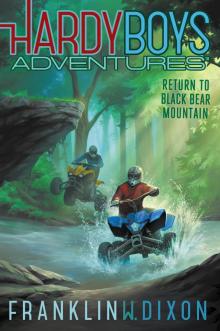 Return to Black Bear Mountain
Return to Black Bear Mountain A Treacherous Tide
A Treacherous Tide Bug-Napped
Bug-Napped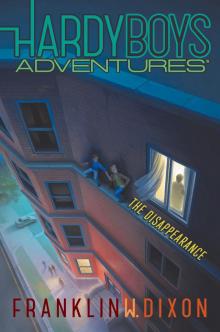 The Disappearance
The Disappearance Sea Life Secrets
Sea Life Secrets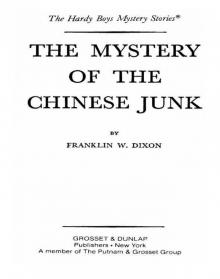 The Mystery of the Chinese Junk
The Mystery of the Chinese Junk A Skateboard Cat-astrophe
A Skateboard Cat-astrophe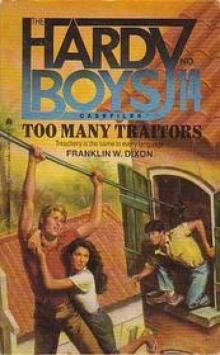 Too Many Traitors
Too Many Traitors Galaxy X
Galaxy X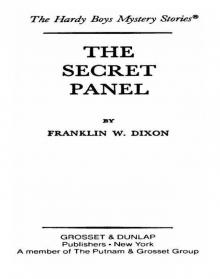 The Secret Panel
The Secret Panel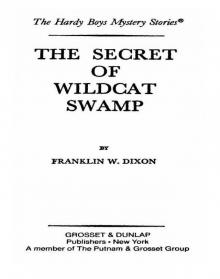 The Secret of Wildcat Swamp
The Secret of Wildcat Swamp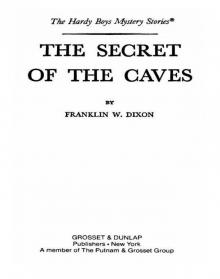 The Secret of the Caves
The Secret of the Caves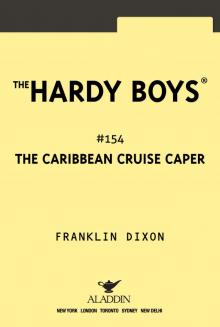 The Caribbean Cruise Caper
The Caribbean Cruise Caper Without a Trace
Without a Trace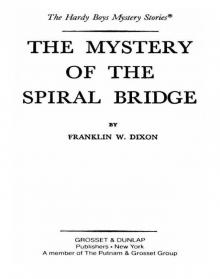 The Mystery of the Spiral Bridge
The Mystery of the Spiral Bridge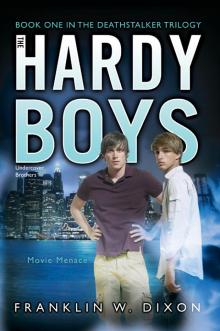 Movie Menace
Movie Menace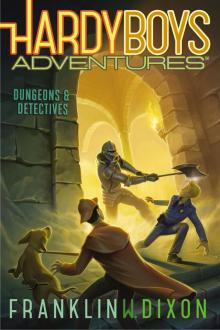 Dungeons & Detectives
Dungeons & Detectives Water-Ski Wipeout
Water-Ski Wipeout The Case of the Psychic's Vision
The Case of the Psychic's Vision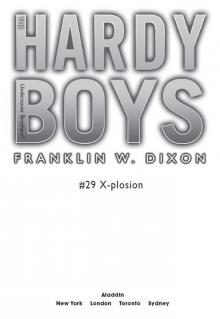 X-plosion
X-plosion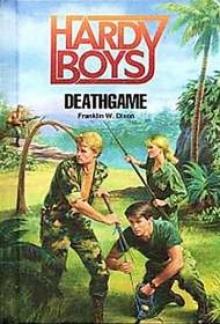 Deathgame
Deathgame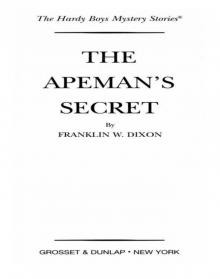 The Apeman's Secret
The Apeman's Secret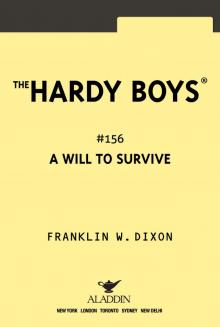 A Will to Survive
A Will to Survive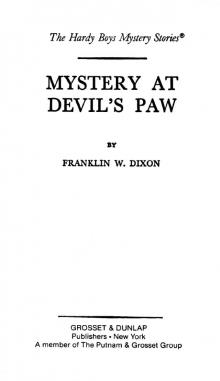 Mystery at Devil's Paw
Mystery at Devil's Paw Blood Money
Blood Money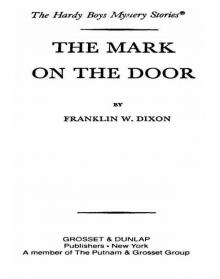 The Mark on the Door
The Mark on the Door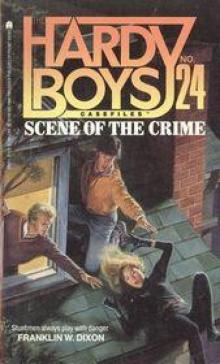 Scene of the Crime
Scene of the Crime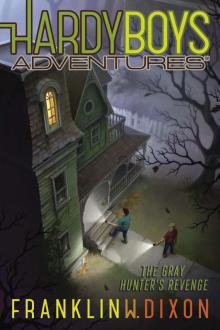 The Gray Hunter's Revenge
The Gray Hunter's Revenge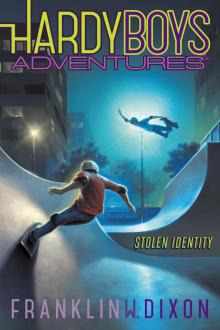 Stolen Identity
Stolen Identity The Mummy's Curse
The Mummy's Curse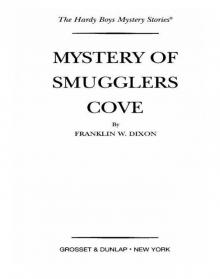 Mystery of Smugglers Cove
Mystery of Smugglers Cove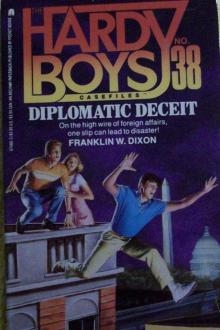 Diplomatic Deceit
Diplomatic Deceit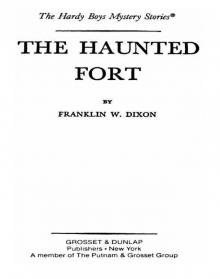 The Haunted Fort
The Haunted Fort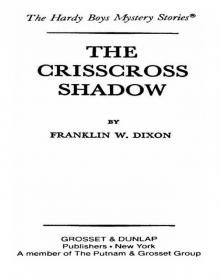 The Crisscross Shadow
The Crisscross Shadow Secret of the Red Arrow
Secret of the Red Arrow Trial and Terror
Trial and Terror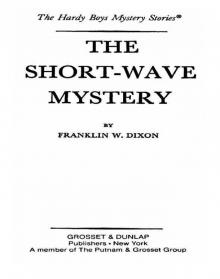 The Short-Wave Mystery
The Short-Wave Mystery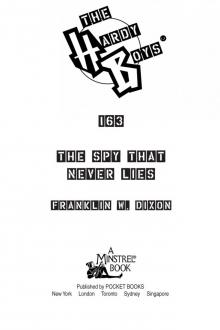 The Spy That Never Lies
The Spy That Never Lies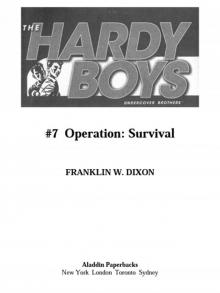 Operation: Survival
Operation: Survival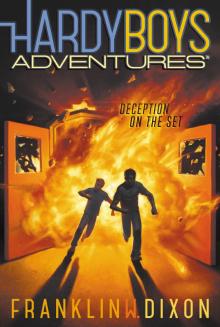 Deception on the Set
Deception on the Set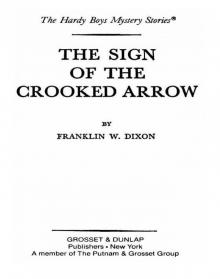 The Sign of the Crooked Arrow
The Sign of the Crooked Arrow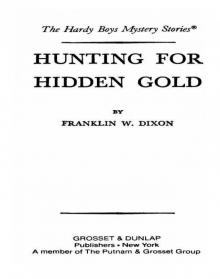 Hunting for Hidden Gold
Hunting for Hidden Gold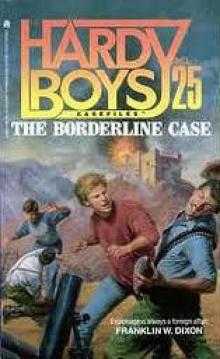 Disaster for Hire
Disaster for Hire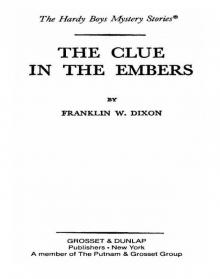 The Clue in the Embers
The Clue in the Embers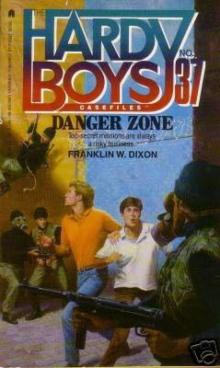 Danger Zone
Danger Zone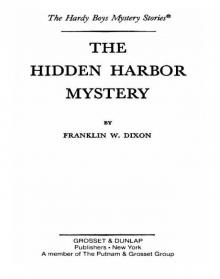 The Hidden Harbor Mystery
The Hidden Harbor Mystery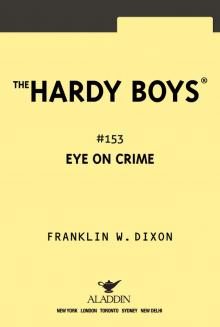 Eye on Crime
Eye on Crime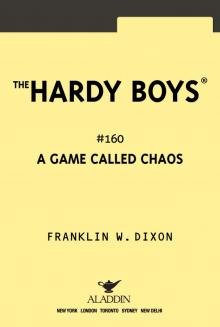 A Game Called Chaos
A Game Called Chaos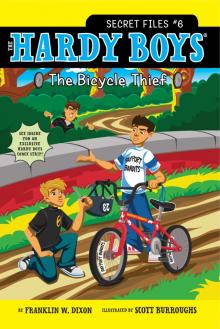 The Bicycle Thief
The Bicycle Thief The Missing Playbook
The Missing Playbook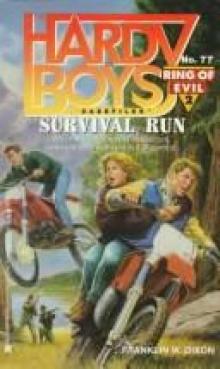 Survival Run
Survival Run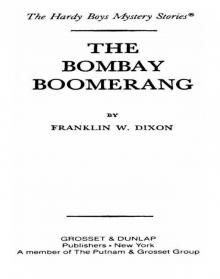 The Bombay Boomerang
The Bombay Boomerang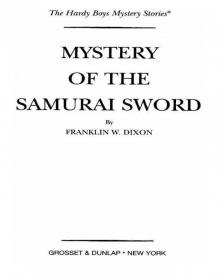 Mystery of the Samurai Sword
Mystery of the Samurai Sword Burned
Burned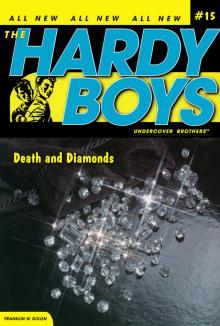 Death and Diamonds
Death and Diamonds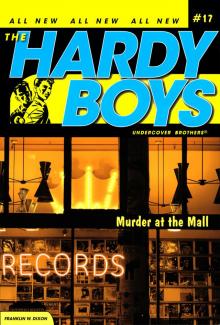 Murder at the Mall
Murder at the Mall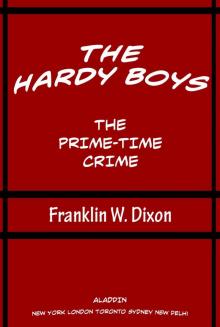 The Prime-Time Crime
The Prime-Time Crime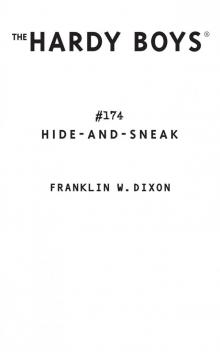 Hide-and-Sneak
Hide-and-Sneak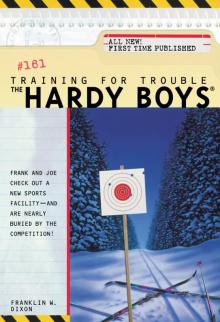 Training for Trouble
Training for Trouble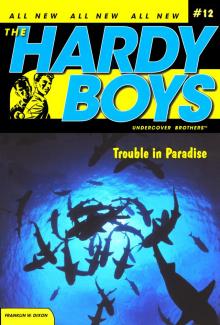 Trouble in Paradise
Trouble in Paradise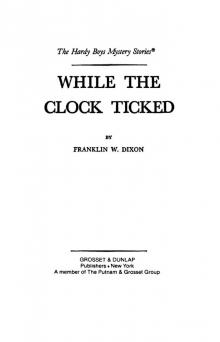 While the Clock Ticked
While the Clock Ticked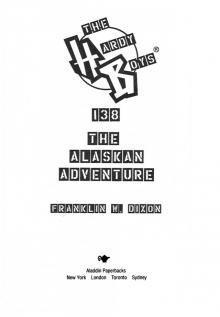 The Alaskan Adventure
The Alaskan Adventure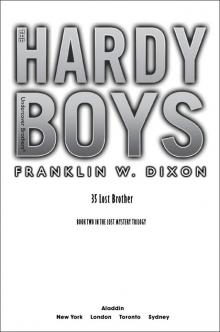 The Lost Brother
The Lost Brother Tunnel of Secrets
Tunnel of Secrets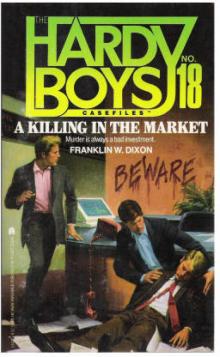 A Killing in the Market
A Killing in the Market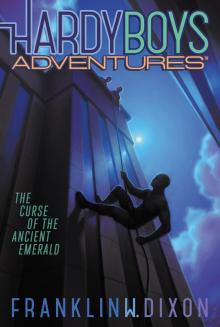 The Curse of the Ancient Emerald
The Curse of the Ancient Emerald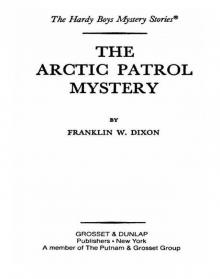 The Arctic Patrol Mystery
The Arctic Patrol Mystery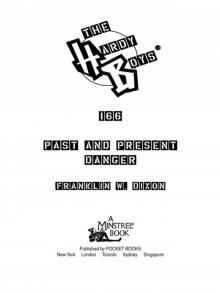 Past and Present Danger
Past and Present Danger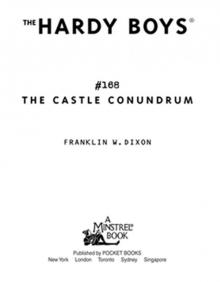 The Castle Conundrum (Hardy Boys)
The Castle Conundrum (Hardy Boys)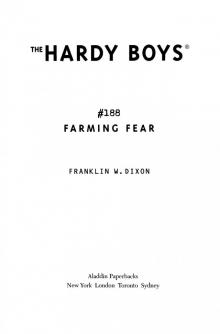 Farming Fear
Farming Fear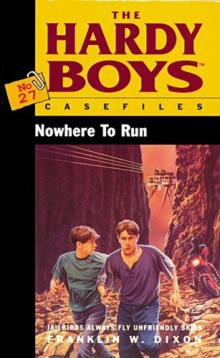 Nowhere to Run
Nowhere to Run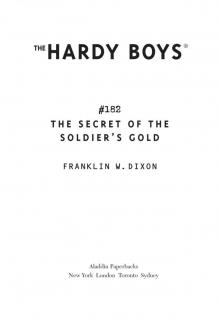 The Secret of the Soldier's Gold
The Secret of the Soldier's Gold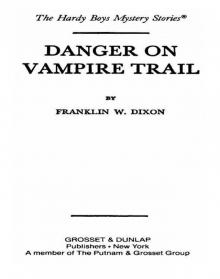 Danger on Vampire Trail
Danger on Vampire Trail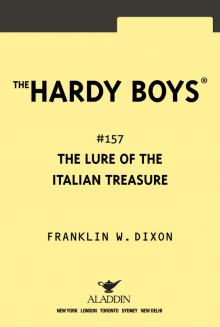 The Lure of the Italian Treasure
The Lure of the Italian Treasure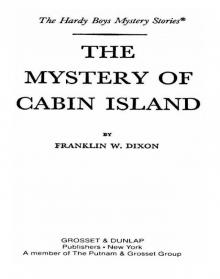 The Mystery of Cabin Island
The Mystery of Cabin Island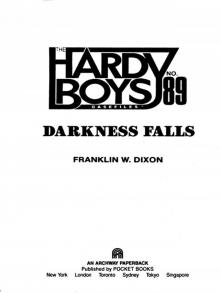 Darkness Falls
Darkness Falls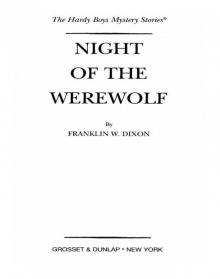 Night of the Werewolf
Night of the Werewolf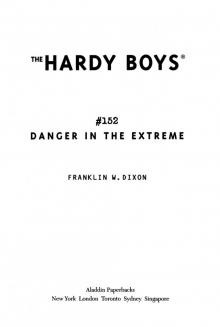 Danger in the Extreme
Danger in the Extreme The Lazarus Plot
The Lazarus Plot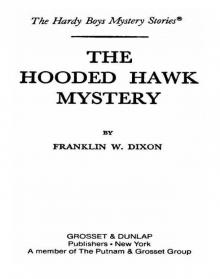 The Hooded Hawk Mystery
The Hooded Hawk Mystery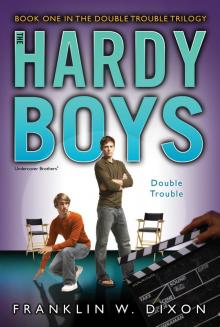 Double Trouble
Double Trouble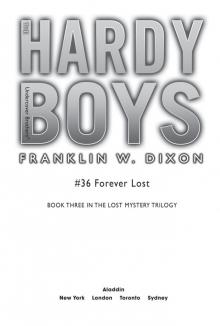 Forever Lost
Forever Lost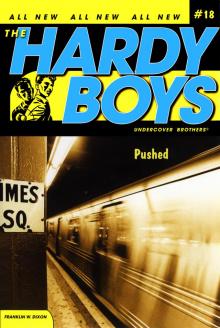 Pushed
Pushed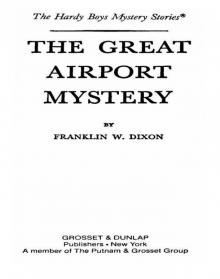 The Great Airport Mystery
The Great Airport Mystery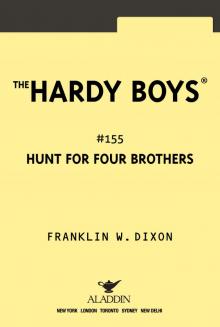 The Hunt for Four Brothers
The Hunt for Four Brothers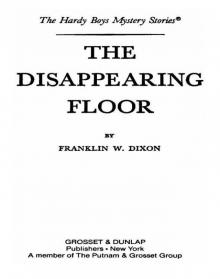 The Disappearing Floor
The Disappearing Floor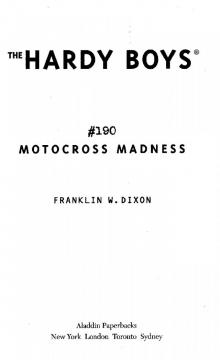 Motocross Madness
Motocross Madness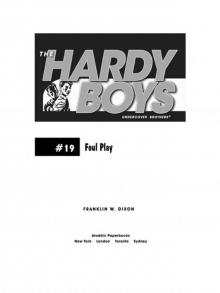 Foul Play
Foul Play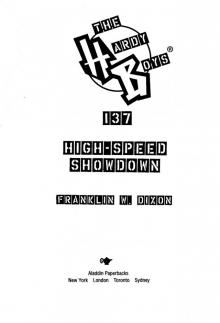 High-Speed Showdown
High-Speed Showdown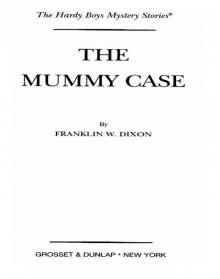 The Mummy Case
The Mummy Case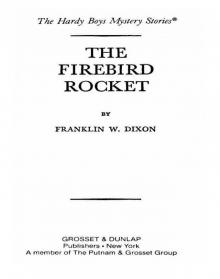 The Firebird Rocket
The Firebird Rocket Trouble in Warp Space
Trouble in Warp Space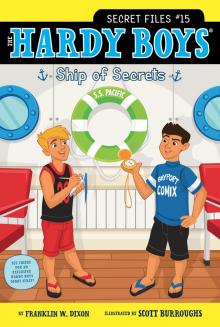 Ship of Secrets
Ship of Secrets Line of Fire
Line of Fire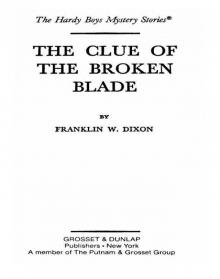 The Clue of the Broken Blade
The Clue of the Broken Blade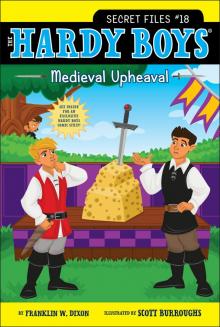 Medieval Upheaval
Medieval Upheaval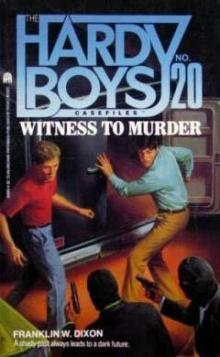 Witness to Murder
Witness to Murder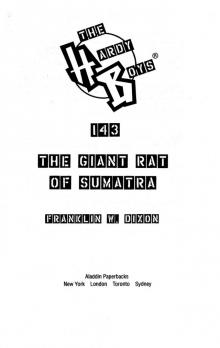 The Giant Rat of Sumatra
The Giant Rat of Sumatra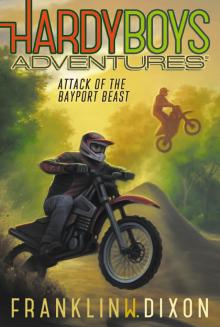 Attack of the Bayport Beast
Attack of the Bayport Beast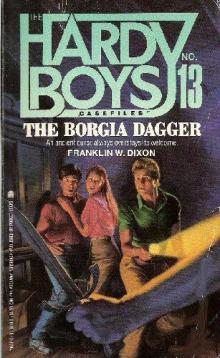 The Borgia Dagger
The Borgia Dagger Scavenger Hunt Heist
Scavenger Hunt Heist No Way Out
No Way Out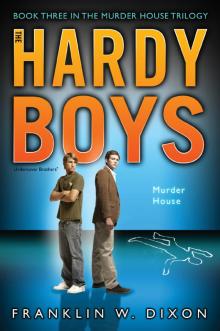 Murder House
Murder House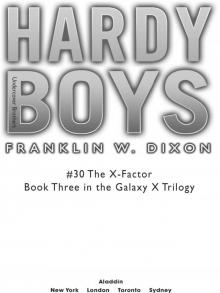 The X-Factor
The X-Factor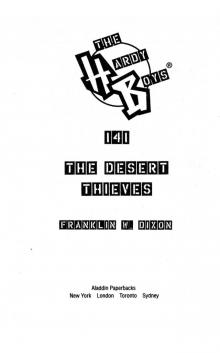 The Desert Thieves
The Desert Thieves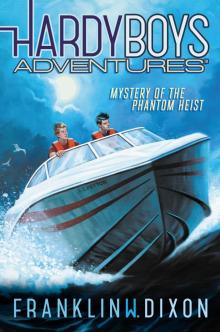 Mystery of the Phantom Heist
Mystery of the Phantom Heist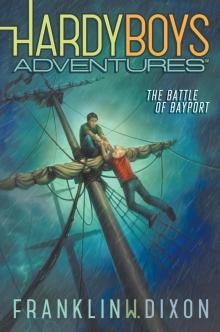 The Battle of Bayport
The Battle of Bayport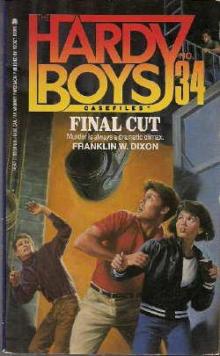 Final Cut
Final Cut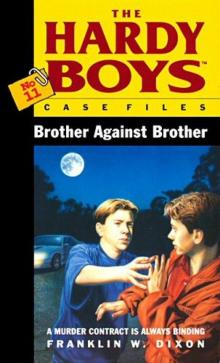 Brother Against Brother
Brother Against Brother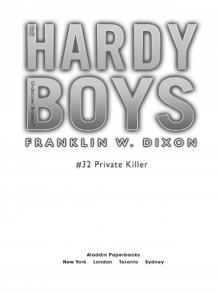 Private Killer
Private Killer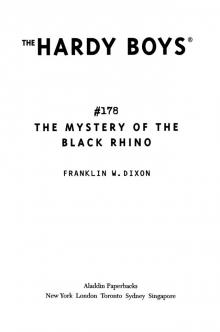 The Mystery of the Black Rhino
The Mystery of the Black Rhino Feeding Frenzy
Feeding Frenzy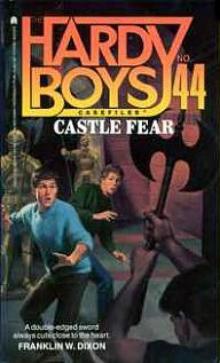 Castle Fear
Castle Fear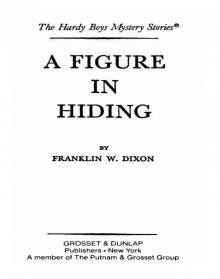 A Figure in Hiding
A Figure in Hiding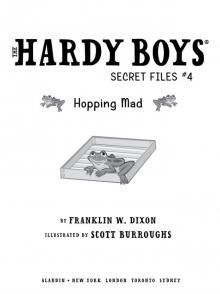 Hopping Mad
Hopping Mad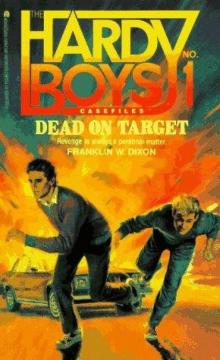 Dead on Target
Dead on Target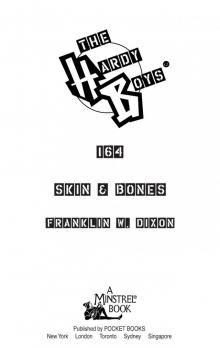 Skin and Bones
Skin and Bones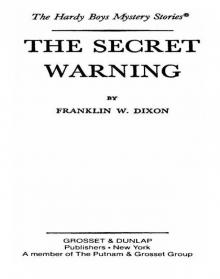 The Secret Warning
The Secret Warning Flesh and Blood
Flesh and Blood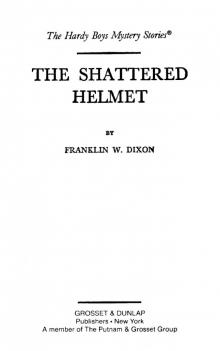 The Shattered Helmet
The Shattered Helmet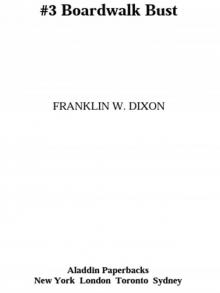 Boardwalk Bust
Boardwalk Bust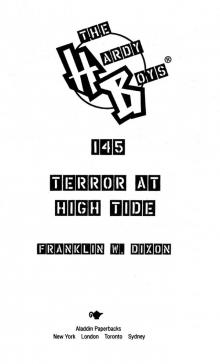 Terror at High Tide
Terror at High Tide In Plane Sight
In Plane Sight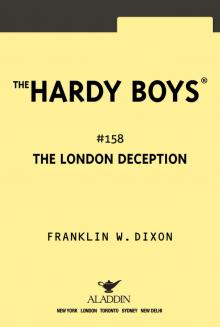 The London Deception
The London Deception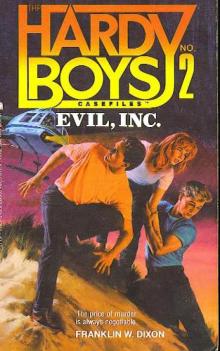 Evil, Inc.
Evil, Inc.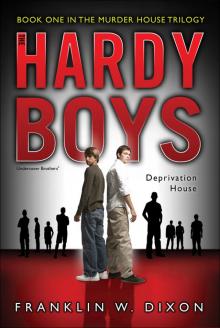 Deprivation House
Deprivation House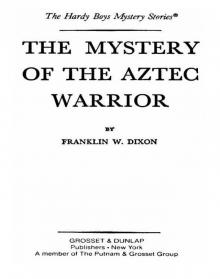 The Mystery of the Aztec Warrior
The Mystery of the Aztec Warrior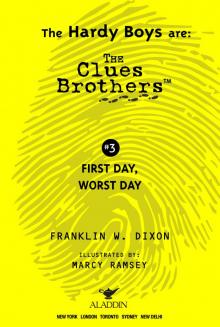 First Day, Worst Day
First Day, Worst Day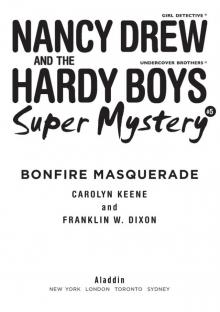 Bonfire Masquerade
Bonfire Masquerade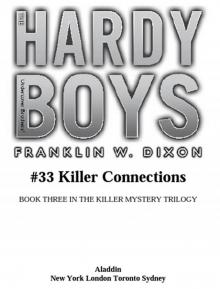 Killer Connections
Killer Connections Strategic Moves
Strategic Moves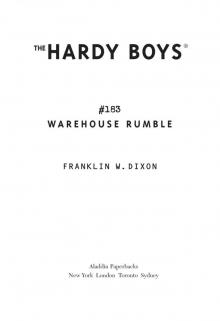 Warehouse Rumble
Warehouse Rumble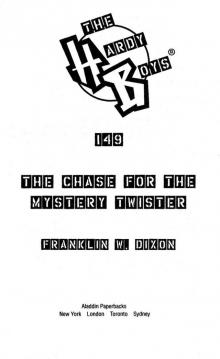 The Chase for the Mystery Twister
The Chase for the Mystery Twister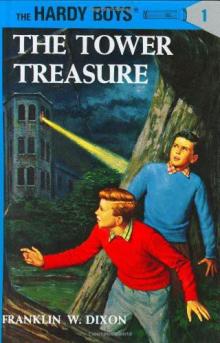 The Tower Treasure thb-1
The Tower Treasure thb-1 The Children of the Lost
The Children of the Lost The Last Laugh
The Last Laugh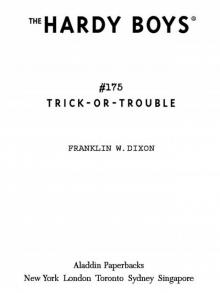 Trick-or-Trouble
Trick-or-Trouble Perfect Getaway
Perfect Getaway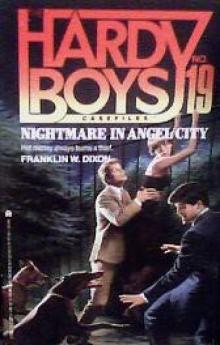 Nightmare in Angel City
Nightmare in Angel City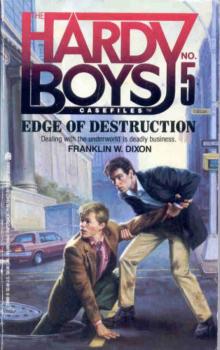 Edge of Destruction
Edge of Destruction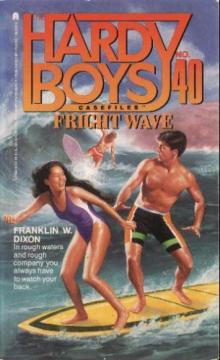 Fright Wave
Fright Wave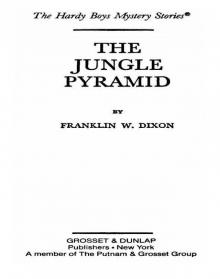 The Jungle Pyramid
The Jungle Pyramid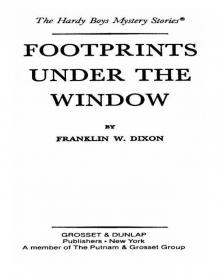 Footprints Under the Window
Footprints Under the Window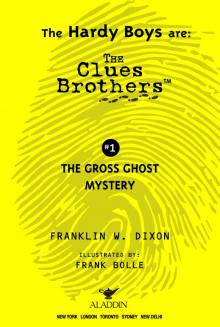 The Gross Ghost Mystery
The Gross Ghost Mystery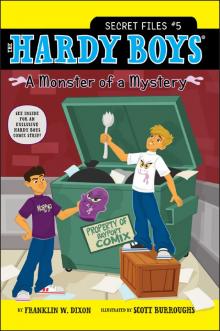 A Monster of a Mystery
A Monster of a Mystery House Arrest
House Arrest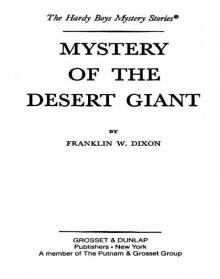 Mystery of the Desert Giant
Mystery of the Desert Giant Talent Show Tricks
Talent Show Tricks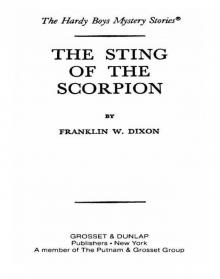 The Sting of the Scorpion
The Sting of the Scorpion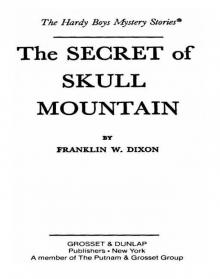 The Secret of Skull Mountain
The Secret of Skull Mountain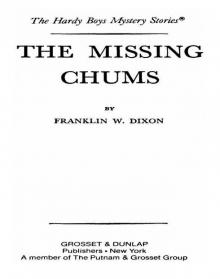 The Missing Chums
The Missing Chums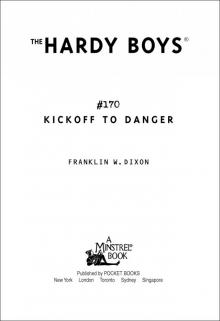 Kickoff to Danger
Kickoff to Danger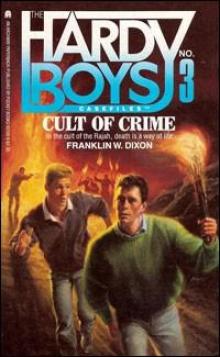 Cult of Crime
Cult of Crime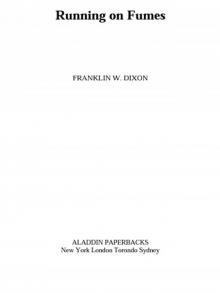 Running on Fumes
Running on Fumes Martial Law
Martial Law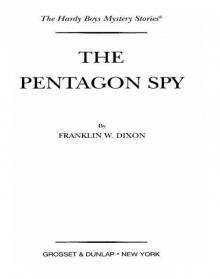 The Pentagon Spy
The Pentagon Spy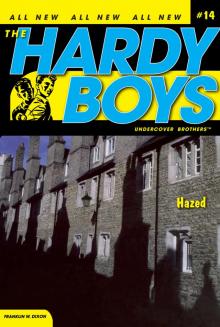 Hazed
Hazed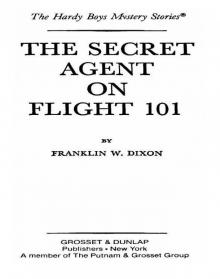 The Secret Agent on Flight 101
The Secret Agent on Flight 101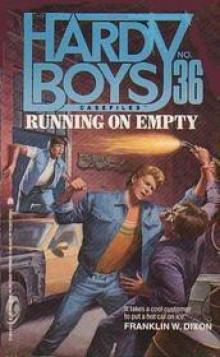 Running on Empty
Running on Empty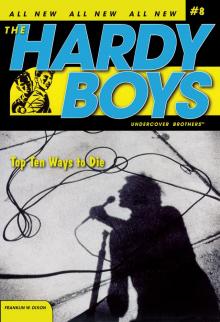 Top Ten Ways to Die
Top Ten Ways to Die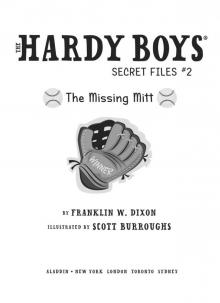 The Missing Mitt
The Missing Mitt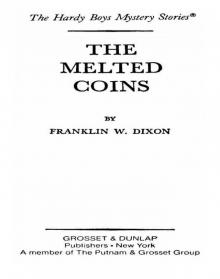 The Melted Coins
The Melted Coins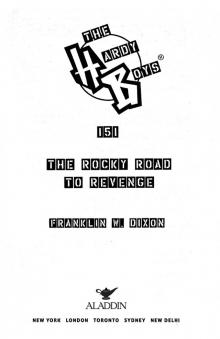 The Rocky Road to Revenge
The Rocky Road to Revenge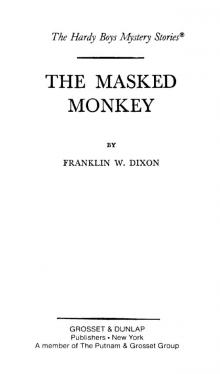 The Masked Monkey
The Masked Monkey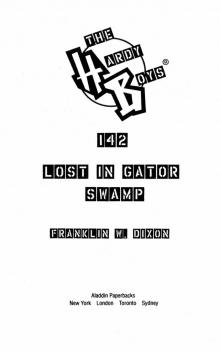 Lost in Gator Swamp
Lost in Gator Swamp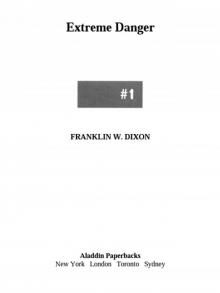 Extreme Danger
Extreme Danger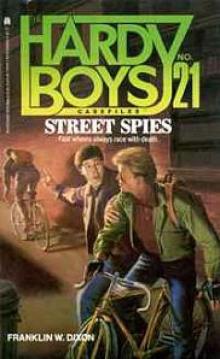 Street Spies
Street Spies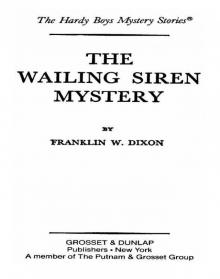 The Wailing Siren Mystery
The Wailing Siren Mystery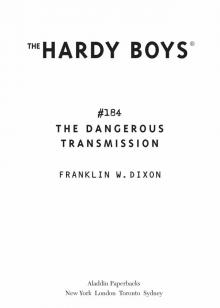 The Dangerous Transmission
The Dangerous Transmission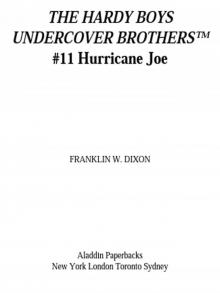 Hurricane Joe
Hurricane Joe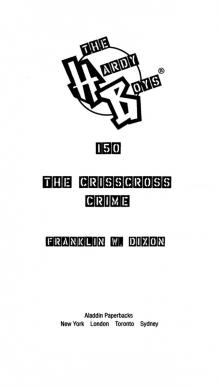 The Crisscross Crime
The Crisscross Crime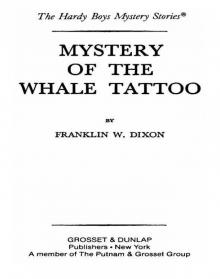 Mystery of the Whale Tattoo
Mystery of the Whale Tattoo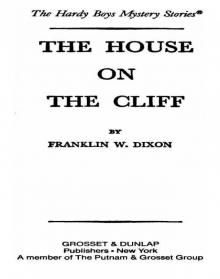 The House on the Cliff
The House on the Cliff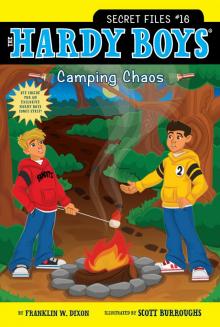 Camping Chaos
Camping Chaos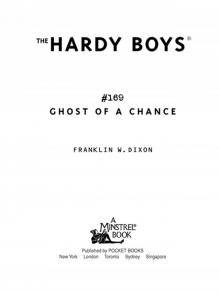 Ghost of a Chance
Ghost of a Chance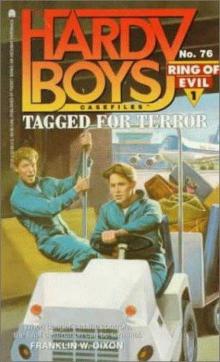 Tagged for Terror
Tagged for Terror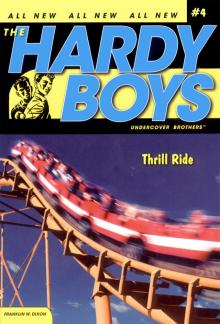 Thrill Ride
Thrill Ride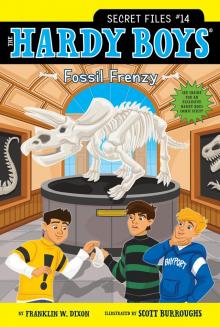 Fossil Frenzy
Fossil Frenzy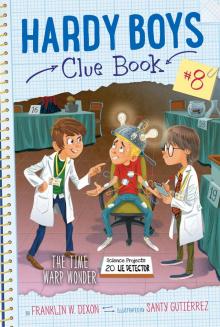 The Time Warp Wonder
The Time Warp Wonder Ghost Stories
Ghost Stories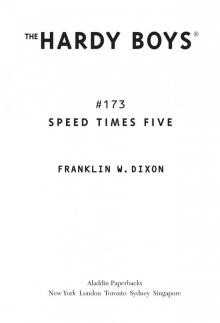 Speed Times Five
Speed Times Five What Happened at Midnight
What Happened at Midnight Three-Ring Terror
Three-Ring Terror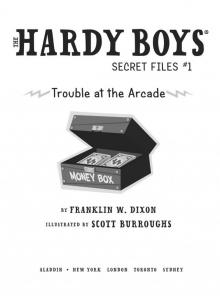 Trouble at the Arcade
Trouble at the Arcade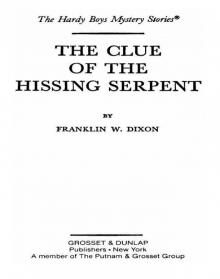 The Clue of the Hissing Serpent
The Clue of the Hissing Serpent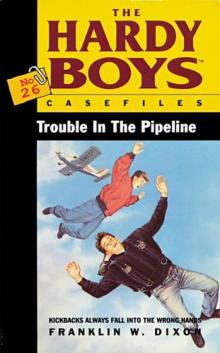 Trouble in the Pipeline
Trouble in the Pipeline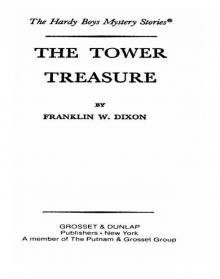 The Tower Treasure
The Tower Treasure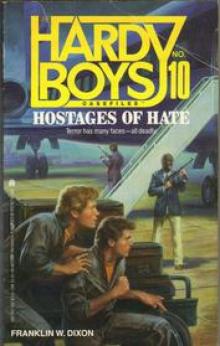 Hostages of Hate
Hostages of Hate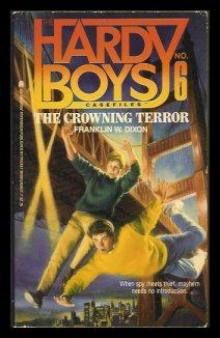 The Crowning Terror
The Crowning Terror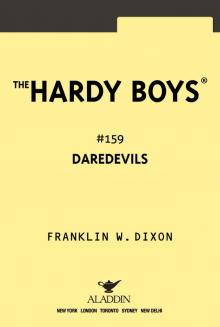 Daredevils
Daredevils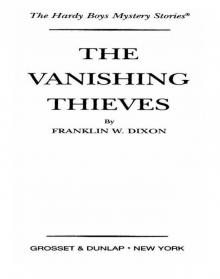 The Vanishing Thieves
The Vanishing Thieves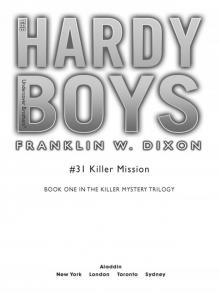 Killer Mission
Killer Mission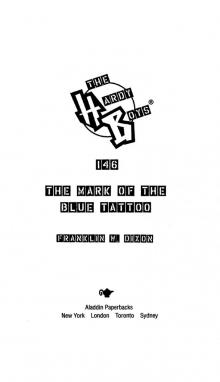 The Mark of the Blue Tattoo
The Mark of the Blue Tattoo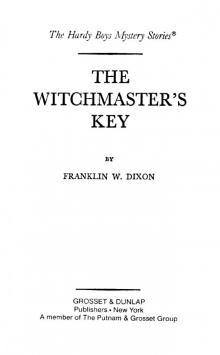 The Witchmaster's Key
The Witchmaster's Key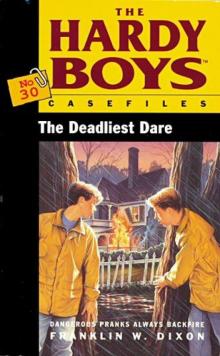 The Deadliest Dare
The Deadliest Dare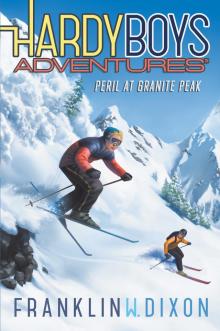 Peril at Granite Peak
Peril at Granite Peak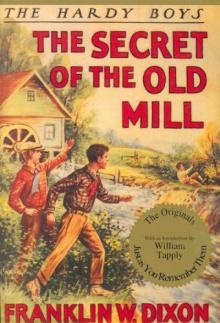 The Secret Of The Old Mill thb-3
The Secret Of The Old Mill thb-3 Rocky Road
Rocky Road The Demolition Mission
The Demolition Mission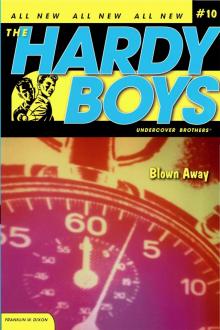 Blown Away
Blown Away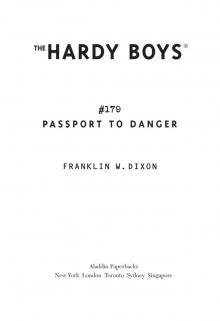 Passport to Danger
Passport to Danger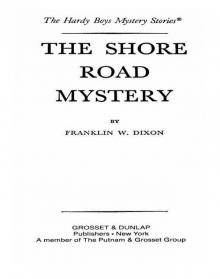 The Shore Road Mystery
The Shore Road Mystery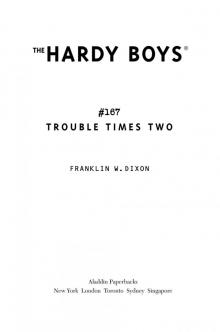 Trouble Times Two
Trouble Times Two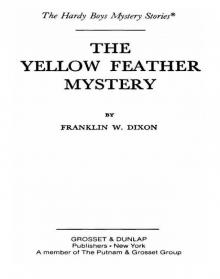 The Yellow Feather Mystery
The Yellow Feather Mystery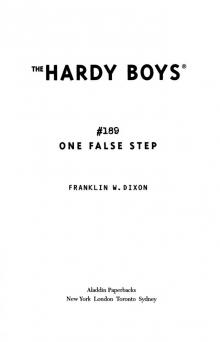 One False Step
One False Step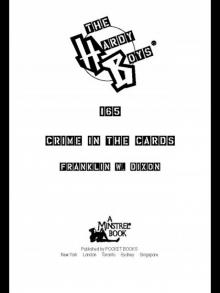 Crime in the Cards
Crime in the Cards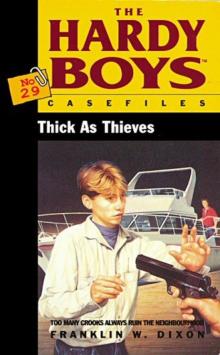 Thick as Thieves
Thick as Thieves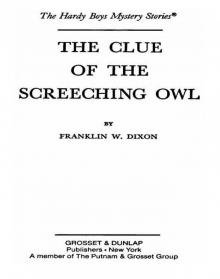 The Clue of the Screeching Owl
The Clue of the Screeching Owl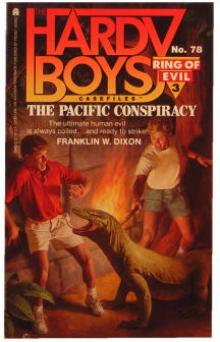 The Pacific Conspiracy
The Pacific Conspiracy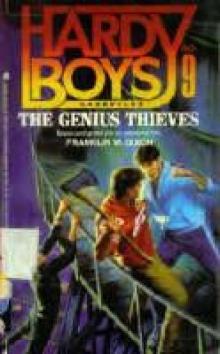 The Genius Thieves
The Genius Thieves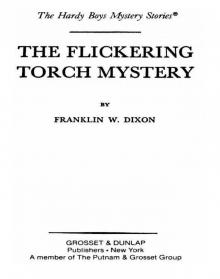 The Flickering Torch Mystery
The Flickering Torch Mystery Into Thin Air
Into Thin Air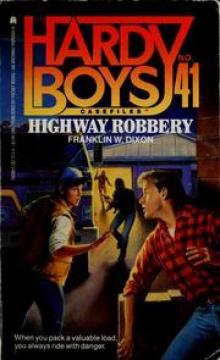 Highway Robbery
Highway Robbery Deadfall
Deadfall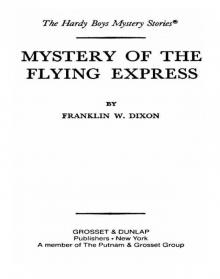 Mystery of the Flying Express
Mystery of the Flying Express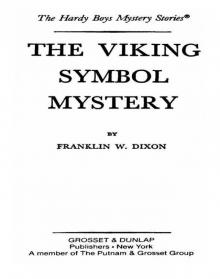 The Viking Symbol Mystery
The Viking Symbol Mystery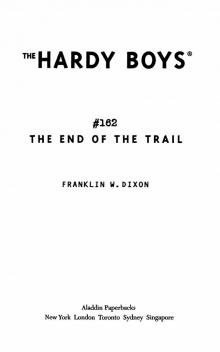 The End of the Trail
The End of the Trail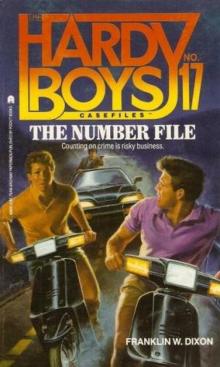 The Number File
The Number File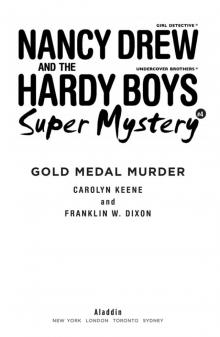 Gold Medal Murder
Gold Medal Murder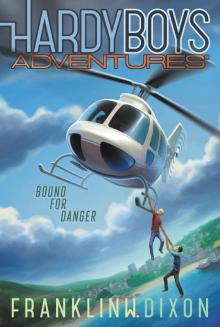 Bound for Danger
Bound for Danger Collision Course
Collision Course The Madman of Black Bear Mountain
The Madman of Black Bear Mountain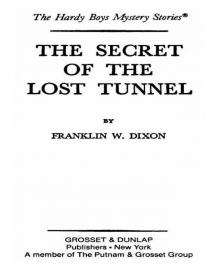 The Secret of the Lost Tunnel
The Secret of the Lost Tunnel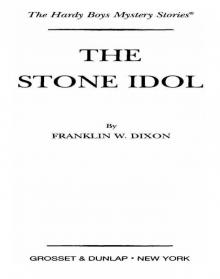 The Stone Idol
The Stone Idol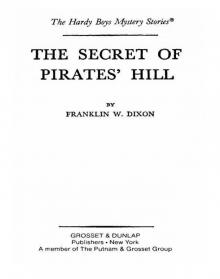 The Secret of Pirates' Hill
The Secret of Pirates' Hill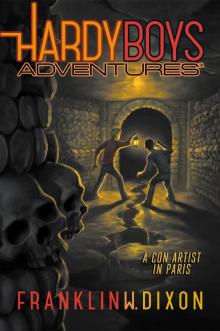 A Con Artist in Paris
A Con Artist in Paris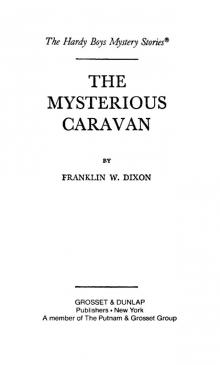 The Mysterious Caravan
The Mysterious Caravan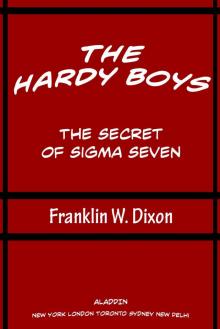 The Secret of Sigma Seven
The Secret of Sigma Seven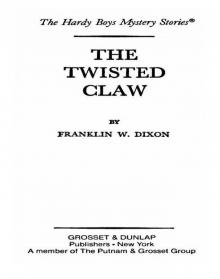 The Twisted Claw
The Twisted Claw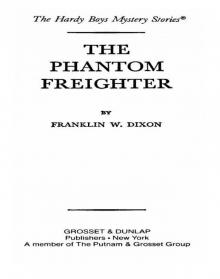 The Phantom Freighter
The Phantom Freighter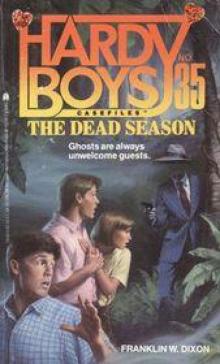 The Dead Season
The Dead Season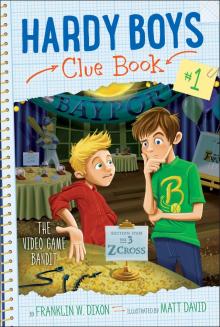 The Video Game Bandit
The Video Game Bandit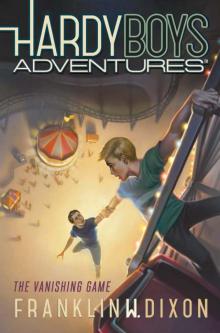 The Vanishing Game
The Vanishing Game Typhoon Island
Typhoon Island